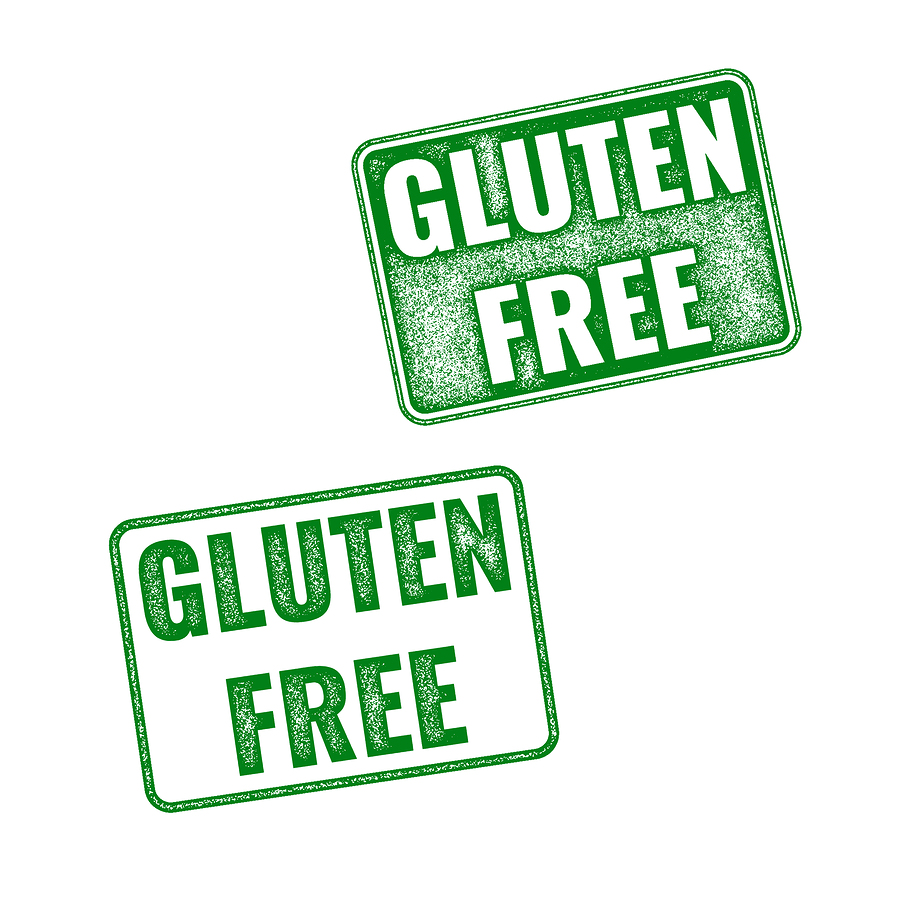 It’s sad to see that the gluten free diet has reached ‘fad’ status because it’s undermining the real dangers of gluten consumption and the true benefits of a gluten-free diet.
It’s sad to see that the gluten free diet has reached ‘fad’ status because it’s undermining the real dangers of gluten consumption and the true benefits of a gluten-free diet.
In genetically susceptible people, gluten can trigger an autoimmune response in the gut called coeliac disease, which is a serious condition.
Coeliac disease can severely reduce your quality of life, and shorten your life expectancy.
To people with coeliac disease, a gluten free diet is an essential and specific treatment for a complex condition.
IT’S NOT A FAD!
Absence of coeliac disease does not mean gluten is safe because some people have a condition called non-coeliac gluten sensitivity (NCGS).
These folk feel tons better when they don’t eat gluten, but their tests do not indicate coeliac disease.
Alternatively, these people are not being tested for the full spectrum of possible immune reactions to the gluten molecule (i.e. standard tests aren’t accurate).
Diseases associated with or caused by gluten
Gluten and gluten free diets aren’t fads. Immune responses generated in the gut by gluten can affect:
- Thyroid
- Pancreas
- Stomach
- Joints
- Skin
- Liver
- Bone
- Nerves
- Blood vessels
In other words, what goes on in your gut doesn’t stay in your gut!
Autoimmune disorders occur ten times more commonly in coeliac disease than in the general population.
These diseases may be ‘silent’ for many years meaning you may not even know you have them (a little bit like my haemochromatosis).
Here is a list of diseases from the scientific literature that are caused by, or associated with, reactions to dietary gluten:
- Autoimmune thyroid disease (Hashimoto’s)
- Thyroid cancer (increased risk)
- Cirrhosis
- Cholangitis
- Chronic hepatitis C infection
- Haemochromatosis
- Non-alcoholic fatty liver disease
- Acute liver failure
- Type I diabetes (20x more prevalent in coeliacs)
- Lupus
- Autoimmune gastritis (parietal cells that make stomach acid and intrinsic factor are damaged)
- Cirrhosis
- Lack of response to hepatitis B vaccine
- Sjogren’s syndrome
- Reduced gallbladder emptying (possibly through loss of gut hormones secondary to villous atrophy and loss of enterocyte mass)
- Osteoporosis (all patients with osteoporosis should be tested for coeliac disease)
- Myopathy (neuromuscular weakness)
- Psoriasis
- Dermatitis herpitiformis
- Cardiovascular diseases (including cardiomyopathy, heart attack, angina, heart failure, stroke, brain haemorrhage)
- Schizophrenia
- Brain hypoperfusion (lack of blood flow to brain due to narrowing of carotid artery)
- ALS
- Peripheral neuropathy
So in the scientific literature, we have a bunch of hefty diseases associated with coeliac disease.
Gluten is not the only reason for these conditions, but it’s a big one and may be a reason you’re not feeling great.
Most patients who present with neurological manifestations of gluten sensitivity have no gastrointestinal symptoms.
This confuses many doctors, who may assume that the absence of digestive symptoms rules out coeliac disease.
Day to day gluten symptoms
But how might you feel on a day-to-day basis if your immune system is reacting to gluten?
Any and every digestive:
- Heartburn / acid reflux
- Bloating
- Belching
- Abdominal pain
- Excess wind/gas
- Constipation
- Diarrhoea (possibly with mucus, pus and blood)
- Irritable bowel syndrome
Gluten sensitivity / coeliac disease may also result in every day symptoms such as:
- Fatigue
- Mood changes
- Memory problems
- Brain fog
- Menstrual symptoms
- Infertility / miscarriage
- Low sex drive
- Headache / migraine
- Skin rashes
- Poor hair and nail health
- Difficulty sleeping
There are many mechanisms by which these symptoms can manifest and the precise reasons will differ from person to person.
Symptoms are usually related to poor nutrient absorption along with a leaky gut, which allows lots of unwanted particles into the blood stream.
The immune system mounts a response to these particles, which may include undigested food molecules, toxins from bacteria and fungi, and environmental chemicals.
It’s the immune response that causes symptoms – a beautifully designed system to alert you that something is wrong.
Remember, it’s not just about coeliac disease
Some of the diseases and symptoms may develop through non-coeliac gluten sensitivity, meaning you won’t get a positive coeliac test.
Don’t let a negative coeliac test lure you into a false sense of security when it comes to gluten.
And don’t be fooled into thinking gluten-free diets are a fad.
Nothing could be further from the truth: they are bona-fide treatment options for dozens of unpleasant symptoms and dangerous health conditions.
Can we help?
If you’re in pain, or feeling tired, grumpy and generally fed up with your level of health, I’m sure we can assist.
Gluten isn’t the only reason why you might be feeling under the weather and we can help you deeply investigate the reasons for your discomfort.
It all begins with a case review and consultation, or a quick 10-15min getting acquainted chat.
You can learn more about them, or arrange one here.
Best,
Dave.

Comments are closed.